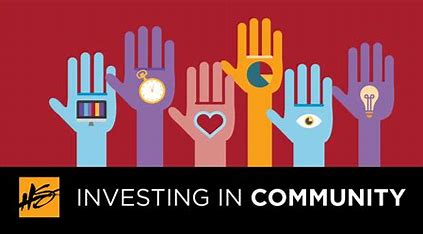Stock market volatility has many talking about investing — especially as it relates to their 401(k)s. For many Americans, stock market exposure is mainly in retirement accounts. But investment isn’t just a matter of money in the market. A government’s investment is in its people.
Wise investments of tax revenue yield dividends in educated, healthy and prosperous communities.
Numerous studies indicate that investments in public education, especially with early childhood education, lead to lower crime rates and lower prison populations. So, it seems counterproductive that our state legislature voted to take millions from our public schools and that they have rejected federal grants for early childhood education.
For every dollar we spend on Medicaid, we get more than a dollar back in economic benefit. So, it seems backward that our legislators have repeatedly tried to scale it back. The latest “compromise,” passed this session, will have a restricting impact — which is unfortunate because many Idahoans on Medicaid are actually working full-time.
Our low average wages in Idaho make it extremely difficult to afford healthcare. After all, our legislature, even with half-measures aimed at property taxes, have yet to address our affordable housing issue and the annual grocery tax credit barely accounts for one week of groceries for a family of four (if they’re lucky and careful). Families have to choose which bills to pay.
Finally, the income tax reduction might seem like a boon, but, again, most Idaho families won’t benefit. An analysis by the Idaho Center for Fiscal Policy found that 66% of benefits for that income tax reduction go to the top earners in the state — all while reducing revenue.
Even Governor Little, as reported by Boise State Public Radio, expressed concern about the state of Idaho’s finances and potential “economic shock” due to some of the current federal Administration’s policies.
So, what’s likely on the chopping block?
Unfortunately, the very things that represent investments in our communities are often the first to be cut in the name of “fiscal responsibility.” But when you look at rankings from the right-leaning American Enterprise Institute, you find that what offers a better economic return on investment are things like infrastructure projects (like the “Biden bucks” we got a couple of years ago), education and healthcare. Tax breaks for the top earners don’t even make the top 10.
The data is there. Invest in communities instead of tax breaks for the individuals at the top, and the return on investment — the dividends we receive — are in the opportunities afforded to our people to have safer, healthier and more stable lives. And the economic benefits that follow.
So, the question is obvious: Why don’t our so-called leaders focus on these community investments?
And what are we the people, who elect them, going to do about it?
Miranda Marquit, Master of Business Administration, is a nationally recognized financial expert, writer, speaker and podcaster. She is the vice chair of the Bonneville County Democratic Central Committee.

